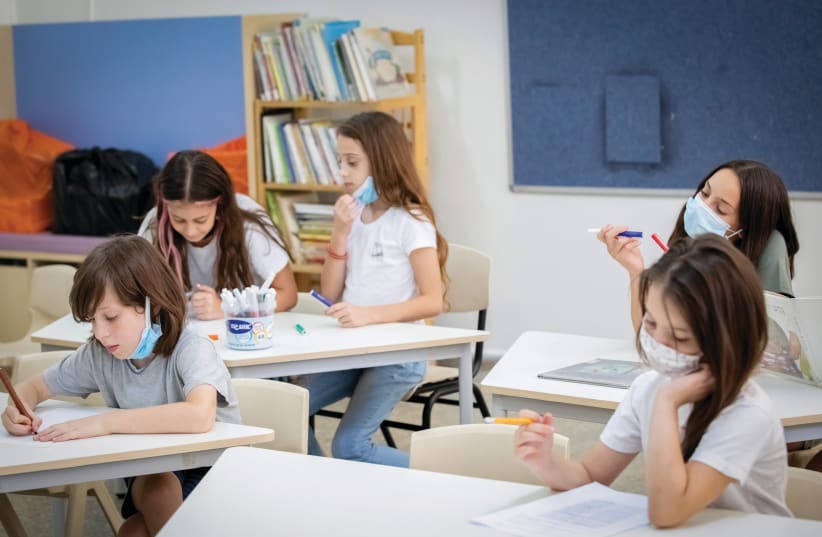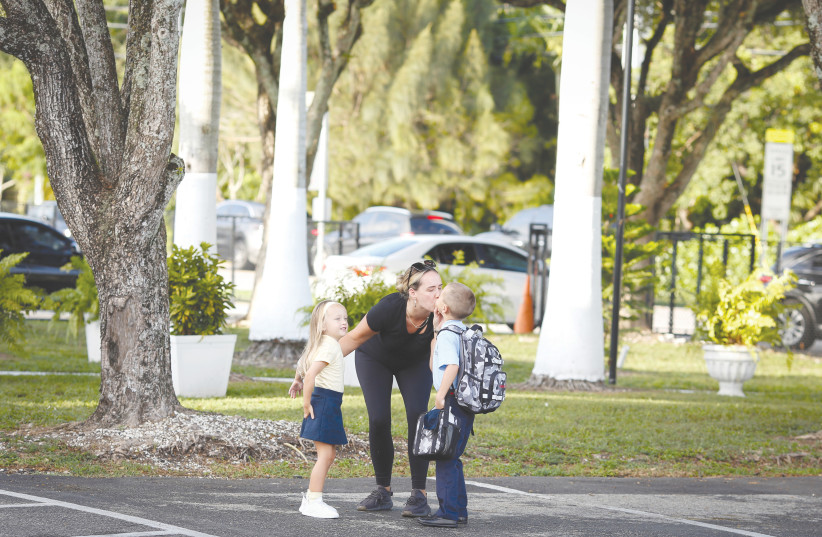You didn’t have to be a genius in order to understand that this is what was about to happen: last week, in an immediate manner, all high school students in Pennsylvania went back to online Zoom classes in order to protect the students, yet from a different kind of disease. The decision was made due to the violent conflicts, mainly in school halls and parking lots between students. In another high school a teacher was attacked when three fights took place in the hallways and one of them even led to the parking lot just outside. Following violence at a high school in the suburbs of Columbus Ohio, nine teachers and seven students were accused of involvement in riots under severe circumstances.
Overall in 2021: 97 cases of such violence have been reported – eight of which led to eight deaths and 35 injuries. This is opposed to 29 cases reported just two years prior in 2019.
The US Department of Homeland Security issued a warning in May over the risk of an upward trend of violence because many students were being denied mental support due to financial issues their families were facing during the COVID lockdowns.
The prolonged period of social distancing appears to have had extreme effects, as well. It is apparent that the students who were social distancing for substantial amounts of time lost their verbal skills in regard to showing patience, and therefore resorted to violent tendencies in order to solve problems.
The cases depicted in the US, and which israeli teachers can also expect to witness, express a violent situation of PTSD caused by the COVID period. A separate, unspoken, powerful and widespread aspect of the situation is that of “long-COVID” showing its dark side through violence that releases the pent up anger we all experienced during distancing and lockdowns. The defiance which expresses the frustration, and the clash that reflects a lack of trust felt by people in various institutions and in the future – all these come together in an intolerable manner with the manifestation violence in the school’s microcosm.
Teachers and principals in schools throughout Israel are already reporting a sharp deterioration in the self-esteem of both themselves and their students. This is an empowered phenomenon of harsh behavior, verbal violence, vandalism and fights in the school halls.
After long months of online learning, the system made a decision, due to unclear reasons, to focus their attention on filling in the educational gaps, though they didn’t provide an adequate response to the major issues in the behavioral and emotional fields. COVID shut the world down and destabilized our sense of self worth, and it’s hard to return to our “normal” lives. Similar to post-traumatic viral symptoms which affect us in our day-to-day lives – whether it be on the roads or in conducting a pro/con conversation about vaccines and masks – a wildfire is raging in schools nationwide. The lack of mental support during COVID is now boiling over and looking for a way to blow steam.
The toxic pressure and the effects of the lockdowns and social distancing are apparent in schools where students, parents and teachers are struggling to return to their lives from before the period of lockdowns and social distancing and are dealing with adapting to new school policies which they haven’t dealt with in two years.
With the immense importance given to closing the educational gap, the teachers and principals must look into the souls of the youth and have an open conversation about their feelings: adapting to their personal needs and above all, convey calming and soothing messages. Then, with the students, they must create a new norm that is made for the life we now face in an age where the virus is still among us.
There is a need to put an emphasis on building relationships, creating safe spaces by seeing one another and understanding the individual’s needs at play. The return to a packed examination period alongside strict disciplinary pressure and its enforcement by school staff only furthers the sense of pressure and creates the frustration that finds its relief in violence all around us.
The writer is CEO of the Atid educational organization.

